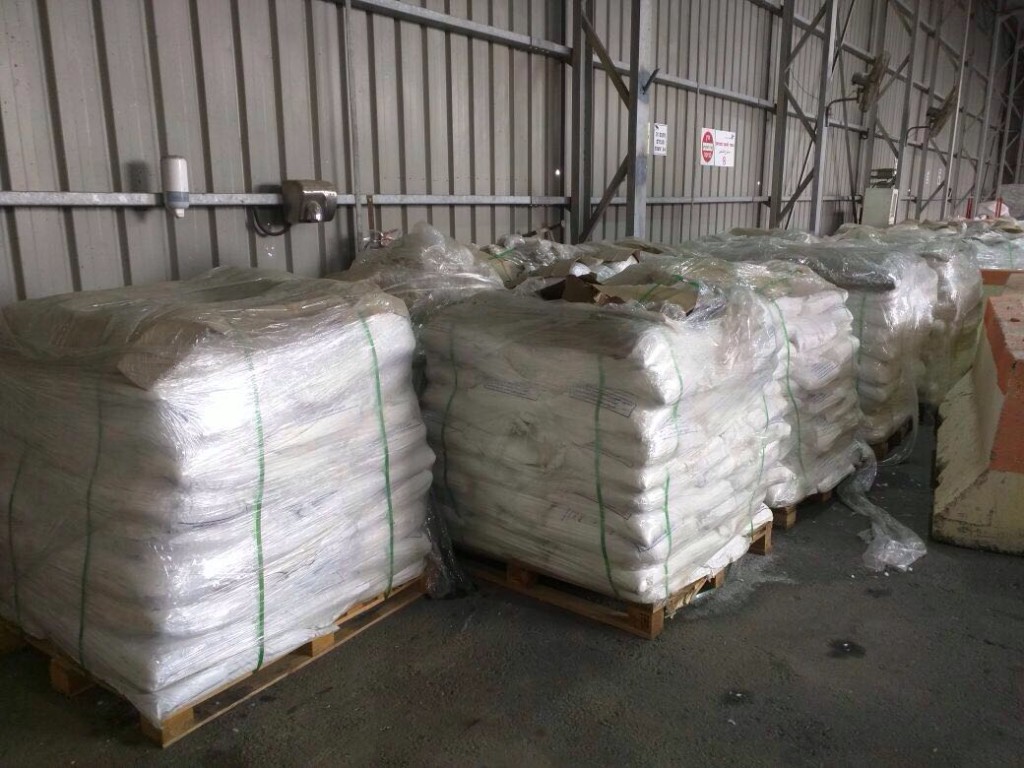
Egypt has agreed to a round-about way to allow aid to enter Gaza from their country after recently shutting down their border crossing with Gaza, potentially allowing conditions there to improve. Meanwhile, a recent study has indicated more than enough food was being delivered to Gaza prior to the Egyptian border closure.
While Israel has faced allegations of committing war crimes through food deprivation of Gaza—an accusation Israel hotly denies—Egypt has not faced such scrutiny. And recent research counters those claims against Israel as well.
There are a range of reasons why aid is apparently having difficulty reaching certain Gazans—including Hamas’ theft of the aid or their attacks on humanitarian crossings. However, a recent study indicates that not only has sufficient food aid reached Gaza in whole to avert any alleged famine there, the volume of supplies is actually equal to 3,200 kcals worth of nutrition per person per day—roughly 50% more than the minimum recommended by The Sphere Project for populations.
The draft “Nutritional Assessment of Food Aid delivered to Gaza via Israel during the ‘Swords of Iron’ War”, published to The Hebrew University of Jerusalem’s website and authored by members of Israel’s Ministry of Health and a range of Israeli universities, looked at the shipment details of food being delivered to Gaza from January – April 2024. The food data, provided by Israel’s Coordinator of Government Activities in the Territories (COGAT), shows the average daily caloric nutrients delivered to Gaza far exceeded the 2,100 kCals recommended by The Sphere Project for three out of the four months. Only February, when 1,741 kcals per person were delivered, was below the standard—and April’s average daily aid more than doubled the daily per person recommendation.
The study, which is provisional and has not yet been peer reviewed, sharply contrasts with claims from the United Nations that Gaza is facing a famine-like crisis. The study concludes that addressing the reasons why food has been prevented from reaching needy Gazans is needed.
The Mideast Update spoke via email with Professor Eyal Zisser, Tel Aviv University Vice Rector and a lecturer at the Middle East History department and the Moshe Dayan Center for Middle Eastern Studies, on the Gaza food situation. He noted that “its hard to say” precisely why the aid is not reaching Gazans. “There is chaos in Gaza, and Hamas takes whatever it can, and the crossings do not work 24/7 so the result is indeed shortage in many areas in Gaza,” said Zisser.
One of the crossings that hasn’t been working at all lately is the Rafah crossing between Gaza and Egypt. Egypt closed the crossing on May 7 after Israel took over the crossing on the Gaza side, with Politico reporting that Egypt was demanding Palestinians run the crossing. Israel has refused since members of Hamas were part of that crossing administrative team. Furthermore, a separate report from Politico noted that Egypt had also refused to even permit aid to journey to Gaza via the nearby Kerem Shalom crossing between Israel and Gaza.
Last week, that started to change. As part of a phone conversation on Friday between United States President Joe Biden and Egyptian President Abdel Fattah Al-Sisi, Egypt committed to allowing aid to go through the Kerem Shalom crossing into Gaza “on a provisional basis”, according to a readout of the call posted to the White House website. Per the press release, President Biden also “expressed his full commitment to support efforts to reopen the Rafah crossing with arrangements acceptable to both Egypt and Israel and agreed to send a senior team to Cairo” this week for further discussions.
Zisser explained to The Mideast Update what appears to be a contradictory approach by Egypt towards the Palestinians. “The Egyptians do not like Hamas but they are sensitive to the pro-Palestinian public sentiment in Egypt, so they condemn Israel but do very little to help the Palestinians,” said Zisser. “And of course they do not want any Palestinian to get into Egypt. The bottom line is they try their best to reach some sort of a ceasefire [between Israel and Hamas], but clearly this is not in their hands.”
In the meantime, Israel continues to allow aid into Gaza—and to chide the United Nations Relief and Works Agency (UNRWA) for failing to deliver aid. The Nutritional Assessment study noted that that since October 7 until the study’s publication, 98.7% of all aid trucks sent to Gaza were cleared for entrance by Israel. What happens to the aid once it reaches Gaza or why isn’t more aid being sent to Gaza? COGAT’s official feed on X (formerly Twitter) is asking UNRWA questions just like those.
Said COGAT in a post to X last Thursday directed at the UNRWA account: “The Kerem Shalom and Erez crossings are open, send the aid. What are you waiting for? BTW, have you collected the hundreds of aid trucks waiting for pickup on the Gazan side of Kerem Shalom?”
(By Joshua Spurlock, www.themideastupdate.com, May 26, 2024)
